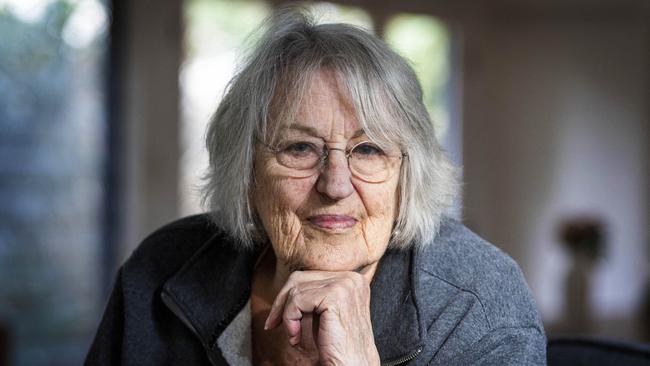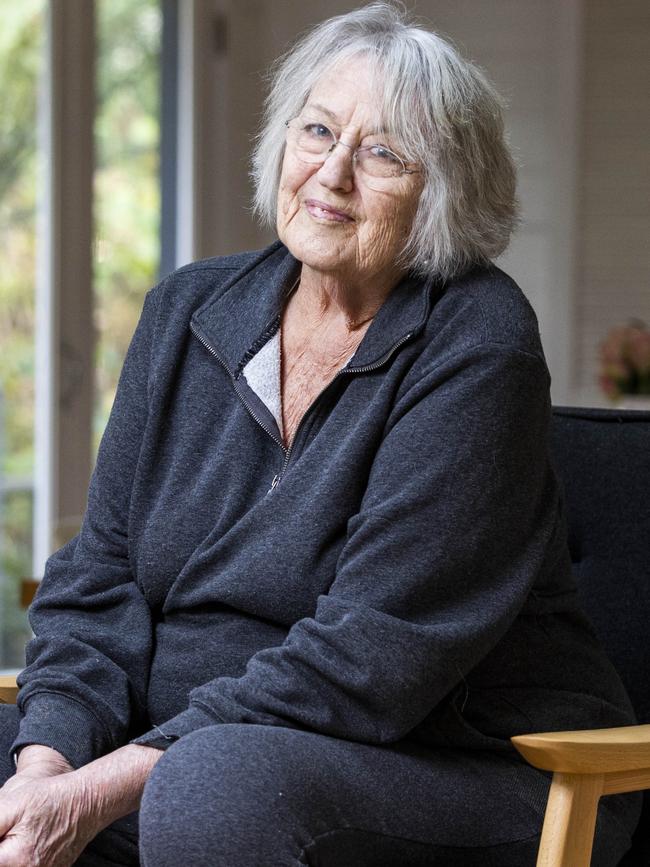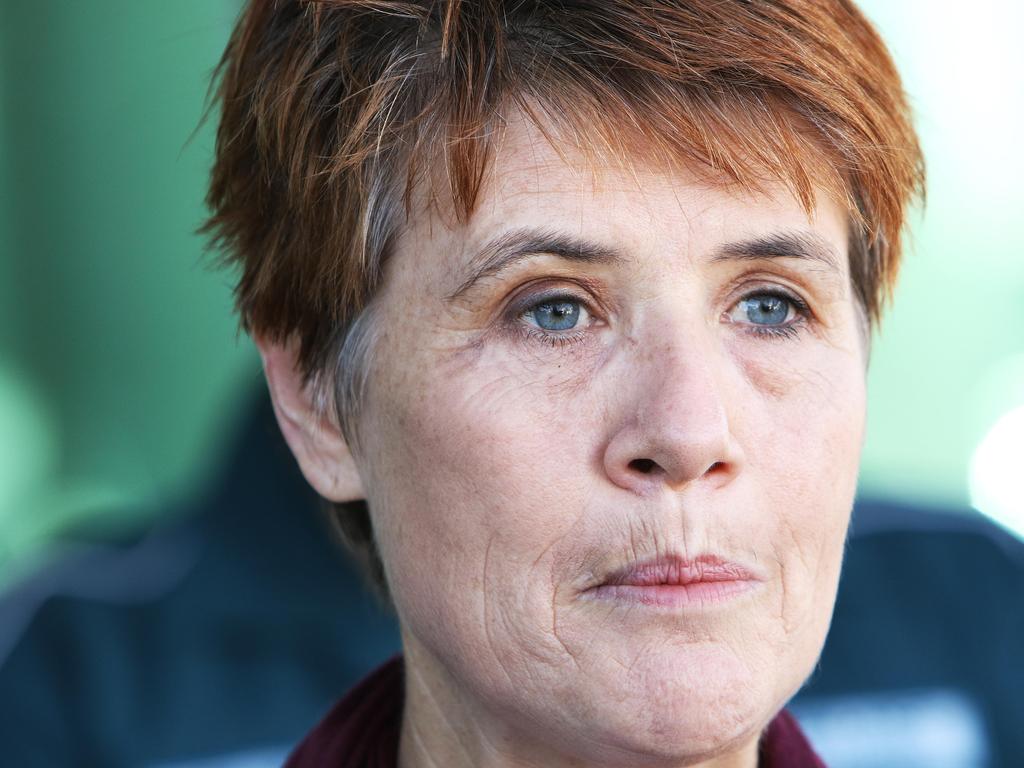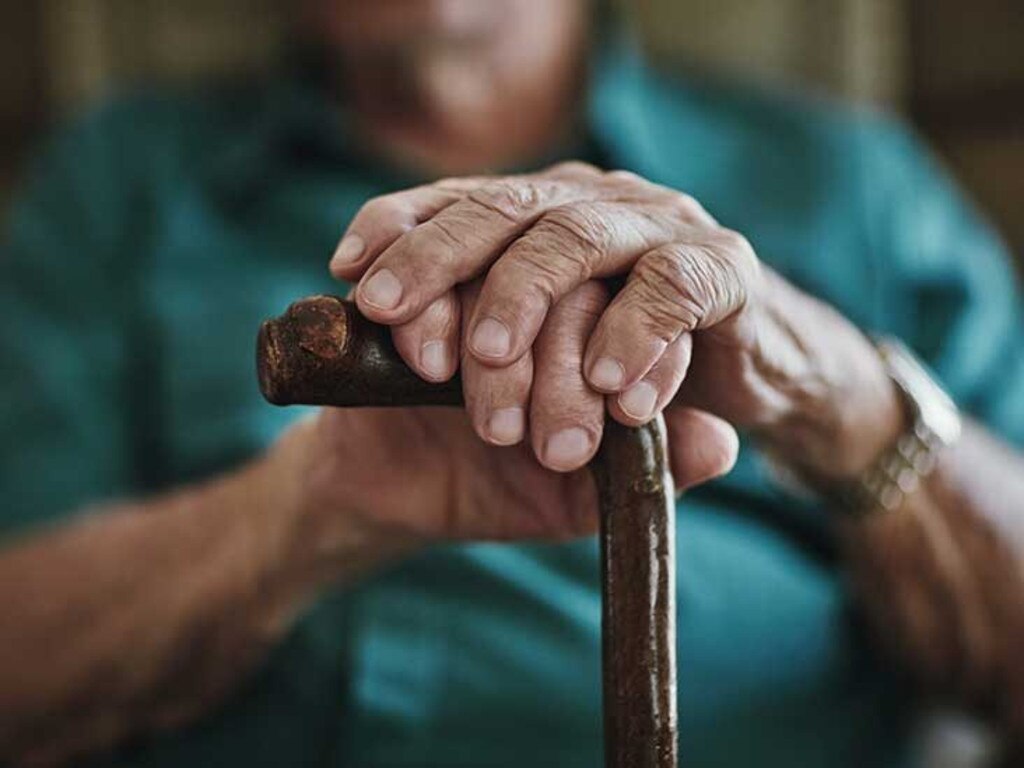Germaine Greer’s life as an aged-care ‘inmate’
After returning to Australia to sell her home, Germaine Greer, 83, put herself into aged care last year. As Covid lockdowns came and went, she was at times ‘not a patient, but an inmate’.

One fine day last July, residents of an aged-care home in NSW gathered to play a game called something like “word Bingo”.
It was frustrating because one new resident knew all the answers, and kept putting up her hand. They had to ask her to stop in the end, to give someone else a go.
It was Professor Germaine Greer.
“I’m supposed to win, aren’t I?” she says, amused. “I’ve got a PhD from Cambridge. I had to sit there, while they groped their way to the quite obvious answer. Probably they hated me. That’s fine, I’m here to be hated.”
Greer, 83, put herself into aged care last year, after returning to Australia to sell her home in the southeast Queensland rainforest, having judged herself too old to continue to properly care for it.
“I had to get out so that the new owner could get in, and I had nowhere to go,” she said. “I went down to Murwillumbah, which is just over the border and saw the aged-care centre, and said, please, can I come and stay with you? Because in a minute, I’m not going have anywhere to live. And when the room became vacant, I moved into it.”
Covid lockdowns came and went, and she was at times “not a patient, but an inmate”.
“They didn’t like that. We’re supposed to call ourselves ‘residents’, but you’re not in residence if you’re shut in. If you’re shut in and can’t get out, you’re an inmate,” Greer says.
She stayed 10 months. And yes, she has some thoughts about the experience.
“I got a good room where I had a view of rainforest, which was tremendously consoling,” she says. “When restrictions lifted, they had outings. People went out on the bus. It seemed to me that it always went to the same places. Not everyone realised that, of course.”
In terms of food and other services, well, Greer is of that generation that doesn’t complain about meals as offered.
“It helps that I went to a Catholic convent,” she said. “They put the food down, you eat it. It’s the same in aged care. Here is your meal. You could complain. I ate it.”
There were plenty of other residents, who did complain, about everything. “Oh yes, but you’ve got to be aware that the age group you’re dealing with. They are complainers,” she says.
“And they have these residents’ meetings where you can go and raise your concerns, but the complainers, they don’t go. The next day, they would complain all over again.
“Some people were quite depressed, but I mean, being depressed is fairly normal for people of my age. I’m 83. Now, what are we going to look for? Death, if we can manage it decently.”
She was impressed by the many visitors that came when restrictions were lifted, noting that “pretty much all were female. Daughters”.
At a guess, she says between 70 and 80 per cent of the other residents were also female, as were 90 per cent of the staff.
The frontline workers are poorly paid, which may be because they are female, “but it’s also the race aspect”.
“A lot of the people working at night were from Nepal. Many are keeping a family afloat in Nepal and living on restricted means themselves and turning up to work at god knows what hours,” Greer says.
“I liked them. They are the quiet ones. There was a good deal of fellowship – you might say raucousness – among the Australian staff. There were times when I could have shot some of them at four o’clock in the morning because of the noise they were making.
“The thing about the Nepali women is they didn’t make all this noise. Australians feel the need to show what great mates they were with each other in the middle of the night.
“But they were respectful of us the patients. And it is quite extraordinary that we don’t pay people properly, when they work in aged care.

“It takes skill, all kinds of forbearance and understanding of other people. I was appalled by how little they were paid.”
The cost of aged care attracted her attention: “People had to sell their homes (to pay the aged-care bond) and then, if they decide, no, this is not for me, they can’t break out, take a cruise, and jump over the edge of the ship, because their money is tied up.”
As to whether it was largely a positive or negative experience, Greer says: “I think oddly enough it was positive. I liked the people. Some of the old men broke my heart, actually.
“It is outrageous that we can’t treat their prostate problems. To see an old man sitting outside the toilet into the night because he could not predict the activity of his prostate was heartbreaking. Now that’s not so much the problem of aged care.
“It’s the problem of medicine. The worst thing you can do as a student is geriatrics. It will get you nowhere: you’ll make no money. That is not good enough.”
Greer left her peaceful room in April, adding: “They may not have noticed, since I left at 6am. I was there, and then I wasn’t.”
She is now living with her brother and his extended family outside Melbourne. “I’ve gone from being a solitary academic lady to living in the middle of a big communal family,” she says.
Is she enjoying it?
“It’s not easy for me. I do need quite a lot of quiet. I keep being startled by the evidence of other people. But they’re turning an old part of the house into a studio. I’ll probably soon be able to become reclusive.”
She is not writing a book “because there are too many books in the world, and so many of them are horrible”.
She is watching the fall of Roe v Wade with very little surprise, saying the original decision was always flawed.
“It was based around a woman’s right to privacy, which doesn’t exist in the US constitution, or with abortion,” she says.
She notes that women’s experience of abortion has changed radically over the past 20 years. For many women, abortion it is no longer a surgical procedure, but “swallowing a tablet, purchased over the counter”.
She doubts that Big Pharma will let those profits go.
“They’ve just found out that part of their business is now illegal, and they can’t let that happen. They have always been more powerful than women, and they will gather around, or else, abortion goes back into the hands of organised crime,” she says.
Having worked in the US, Greer understands “how religious ideas have real meaning to American people”.
“They’re not casually religious, they’re deeply religious, and never been happy about abortion,” she says.
She wonders if same-sex marriage, also sanctioned by the US Supreme Court, may be next to fall, “because that right is also not there in the constitution. Although, my position has always been, why would anyone want to get into marriage? It’s the worst system ever invented.”
Germaine Greer will discuss her experience in aged care as a guest at the Canberra Writers Festival on August 13.








To join the conversation, please log in. Don't have an account? Register
Join the conversation, you are commenting as Logout